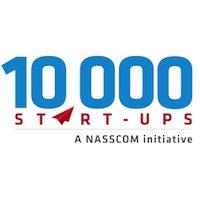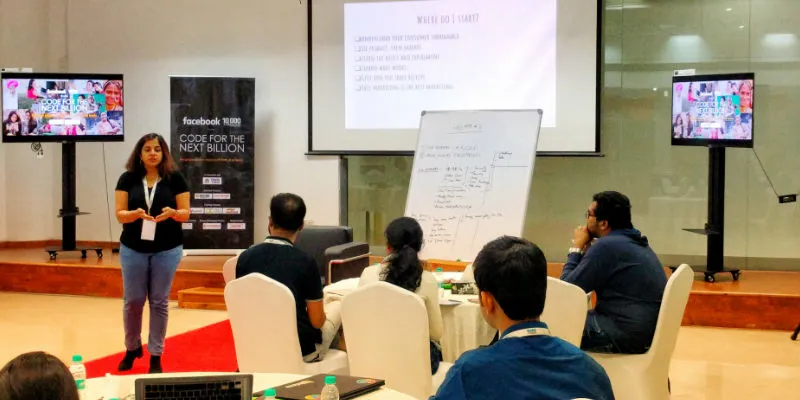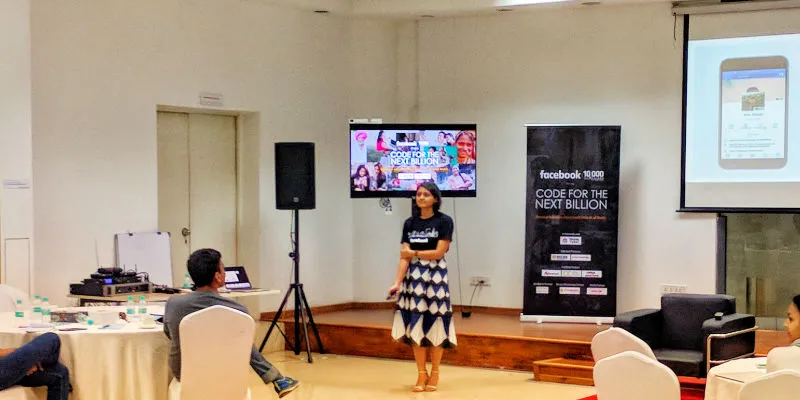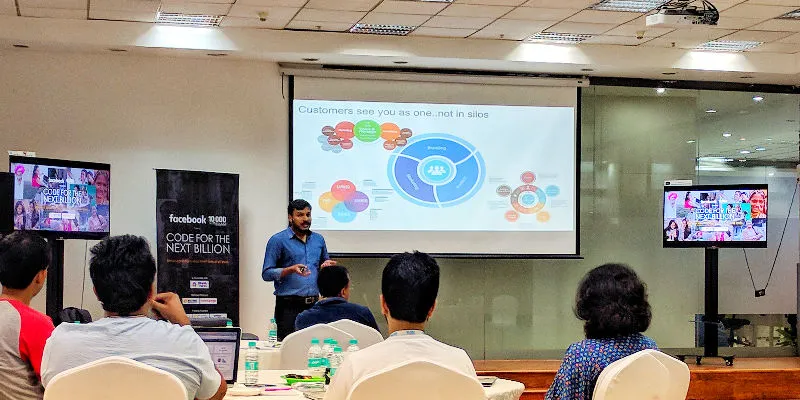
Nasscom 10 000 Start-ups
View Brand PublisherWhy business must pay attention to branding and marketing to scale up
- How do you position your brand for two different customer segments at two ends of the service offering?
- How do you reach out to a fragmented and dispersed audience spread all over the globe?
- How do you accelerate the sales process and close the deal faster?
- How do you ease the resistance to change, especially for a novel product disrupting an age old practice?
- How do you ensure brand recall among people at the bottom of the pyramid?
These queries were among several that Nidhi Bhasin, growth and brand marketing consultant and executive coach, answered at the Growth Hacking Bootcamp, part of the Code for the Next Billion programme, a joint initiative by Facebook and NASSCOM 10,000 Startups . Nidhi who has worked with global giants like Google and home-grown stellar startups like Flipkart and Melorra, has helped organisations strengthen their brand positioning on digital platforms, and aided mobile marketing initiatives.

The session covered two aspects – growth hacking and brand building. Sharing her experience of working with young businesses, Nidhi said, “It’s not unusual to see organisations spending heavily on digital marketing, right after building the product. Today, even though market dynamics may change, the fact is that marketing fundamentals do not. The basics of marketing remain true – product, pricing, promotion and place. Hence, it’s important for businesses to factor all the four aspects before being bullish on promotions.”
Learn all about your end-users and build products and solutions for them
Nidhi reiterated the importance of building the product for the end-user after assessing the market need and understanding user behaviour to tailor the marketing plan. She said, “You may know who your customers are, you may know the demographic details of your target audience, but it is equally important to know what their likes and dislikes are, what touches them at an emotional level, what their day looks like and other such intricate details. It’s only then you will find factors that will help you make a brand connect with the customers.”
Nidhi advised startups that marketing is not always about monetary transactions, “it’s also about what value you are offering your customers. Once you are able to show the value you bring in, you will have loyal customers.”
Building a brand identity
The marketing and branding professional urged startups to capitalise on a number of free marketing tools in their initial days to overcome challenges posed by stringent marketing budgets. She said, “Free marketing is the best marketing. One key element that will help you win the grassroot market is to tap and leverage peer-endorsement.”
Sharing on her take on brand building, she said, “If you want to build a brand, you have to be consistent in your communication all the time.” She shared her observation on how organisations do not reflect deeply on their brand identity, which affects their business growth and followed it up with an explanation on how the brand identity is diluted when brands focus heavily on marketing through sales to break market clutter and competition.
“As an organisation think about what you stand for and why you are here. Take time to reflect and act. But, also be careful not to fake your identity just to sound fancy. Do not craft a fake identity because it will negatively impact your business.”
Through case studies she highlighted the importance of brand projection and transforming the brand projection from time to time to stay relevant. “You cannot change your brand identity, it is who you are and what you do. But, what you can change and must change top stay relevant is the brand projection. Brand projection is how you want your customers to perceive you.”
Closing the session, she advised startups to focus on both long term and short-term marketing and draw out a weekly plan of action for both, to ensure that one doesn’t compromise or clash with the other. She also said, “Today, I see young startups who have low budgets, come out with creative, interesting and effective marketing. But that fizzles out when they get funded, as startups often pump in money without giving it a second thought. It’s important not to slack in marketing and creativity just because you have the budget for it and have funds to spend.”
Telling a compelling story
Anu Desai, Client Solutions Manager, Facebook India, highlighted the potential and relevance of social media platforms like Facebook and Instagram. “Today, there is strong shift in the way people consume media, tilting mostly to mobile. Today, mobile has people’s time and attention. It has changed the way people discover, connect and engage. And, that’s why the mobile is increasingly becoming the first point of contact for consumers with brands and businesses. And, a platform like Facebook can be a great partner at every step of the consumer’s digital journey – beginning at awareness, following with demand generation to acquisition, be it lead generation or app instalment.”
Anu highlighted how Facebook can help provide actionable insights and help brands to make decisions that can help drive their business. “Insights can help understand your customers and also the relevance of your product or service to that customer segment.”

Anu demonstrated the different video formats supported by the two social media platforms to show what works best based on the business use case scenario. She highlighted how live videos are becoming a powerful way of telling your story. “First, it was video which became an integral channel for brands to visually tell their story. Today, that is being taken over by live video. Live video is making it possible for brands to interact and engage with their audience in real time. This is a huge advantage for brands, and every business must learn to capitalise on it to stay relevant to today’s customers.”
Anu highlighted how brands can use free online tools to effectively tell their story and also spoke about the importance of enhancing and staying consisting with the design aspect of branding. With simple examples, she showed how brands can tell their story effectively with well-made three-second-long videos that do not require intensive investment in skill, technology or money.
Anu also spoke about the difference in the audience of Facebook and Instagram, rebranding and boosting app engagement with Facebook , how to capitalise on brand campaigns on Facebook, and how brands can find the right format for the content.
Why startups need growth hackers
The second day of the Growth Hacking Bootcamp saw Ankit Agarwal, Director, Marketing at Accel Partners and Former Director, Marketing at GrowthStory (startup platform by Meena and Krishnan Ganesh) and Ex-Flipkart, talk about growth and share some important lessons on product and branding.
“It is important for different functions in a company, such as product, marketing, branding to stay aligned to the stage the company is in and evolve in tandem with one another. You want customers to experience consistency and see you as one, not in silos.”
Ankit walked the participants through branding and performance marketing concepts, how to select right method to assess market need and to create a minimum viable product (MVP) for the need startup is trying to solve and different types of growth hacks with focus on prioritising hypothesis to achieve maximum impact early-on.

“When trying to optimise for conversion rate, it is important to prioritise & select right experiments that can help achieve maximum impact. Try drastic experiments first such as changing the complete user flow before settling for changing button colours. Only when sure of an optimised user flow, try experimenting with other elements on the page.”
Ankit, who has worked with several startups across multiple domains (e-commerce, food-tech, ed-tech, home services, healthcare and others) highlighted why a growth-hacker plays an important role in any startup and who should don the hat.
“In the initial years, the founder(s) need to be closely involved in driving growth because they own and define the product. Post PMF (Product Market Fit), startups can hire a person into their core team -- someone who understands product, marketing and is strong in analytics. Someone who has the right methodical approach and framework in mind, who can constantly keep questioning and finding answers on how to acquire users efficiently at an exponential rate and get them to move from one step of the funnel to another. It will be much more than changing channel mix and tweaking campaigns.” He stressed that, it is the founders responsibility to instil a culture of focussing on data driven growth and to give team complete ownership for fast and rapid experimentations.
Ankit advices startups in the post PMF stage to focus on what kind of company (i.e. brand) they want to create. “At this stage, startups need to invest time thinking about and outlining core brand attributes or values. It can be tempting to directly jump into the execution piece of a brand campaign (messaging, creative, media planning, etc.) but it is important for every brand to have a core brand idea that will remain consistent over time."
He added, “Another important aspect startups need to get right is - timing and product readiness.
It is important for your brand activities to be aligned with the phase your product is in and how mature the category you are operating in is. Moreover, messaging has to progress seamless through multiple stages right from creating awareness to connecting emotionally with consumers, so the timing is of great essence”. He also added that startups must ensure that the product and service experience is spot on before reaching out to outside world. “Good branding and campaign can only complement a great product, not be a substitute for one.”
The workshop helped the participating startups to take home some key learnings. For instance, Neeraj Gutgutia, Founder, Right2Vote, says, “The workshop reiterated that in a complex business like ours we should have patience. A disruptive change like mobile voting cannot happen overnight. We need to continue to keep in mind that initial conversions take time because of the risk of change. But with each conversion cycle, converting subsequent customers will be easier as positive results with earlier customers would add to the confidence of subsequent customers. And, that’s why as a social-impact startup, we need to focus on the goal and ensure that we continue to move in the right direction, even if it’s only by an inch a day.”
Interacting with the speakers helped the entrepreneurs imbibe another valuable business lesson – how to customise the pitch for each of your customers and stakeholders, and not use the same pitchthey use for an investor to a customer. Another learning was the rationale behind why it’s important not to overload customers with all the benefits that the product or service offers, but focus only on the key benefits relevant to that segment. Neeraj says, “We had been focusing too much on numerous benefits of mobile voting such as higher voting percentage, reduction in cost, time and human effort but had failed to address the issue of anxiety related to the online voting system in our communication. Even though online voting is obviously safer, we need to drive home the point by addressing the customers’ anxiety.”
Neeraj explains that the session on digital marketing techniques and tools like hot jar, hit map, click map, and numerous features of Facebook Analytics were helpful and they are now armed with the awareness and realisation to capitalise on the tools and platforms extensively to hack growth. Neeraj says, “The workshop has helped to pinpoint avenues to tap opportunity and has been instrumental in identifying some glaring errors and put us on a path for course correction.”
Meenakshi JaIn, Founder, Helper4U, says that the workshop has helped to understand her customer and what kind of marketing efforts are likely to yield results. “
“What we have learnt is that the bottom of the pyramid job seekers (especially women) do not read newspapers, are not internet savvy, and do not have time to watch TV or listen to the radio. They don’t even pay attention to the hoardings or banners put up in the neighbourhoods, or on buses and autos. So, these traditional mediums do not yield results when we try to reach them. What works the best is personal references. So, we are looking to leverage hyper-local partners and individuals who work in the urban slums across cities to champion the work we do. We are also look at reaching out to them through WhatsApp messages to registered seekers for brand recall. Another learning has been that not many people target this segment with any physical reminder that they can keep, like a pamphlet or carry bag, or written receipts. But, if they get any of these, they keep them safe for a long duration. So, we are also trying to use these to reach the job seekers.
The workshop was part of the intensive mentoring by subject matter experts for nine Indian social impact startups who have been shortlisted for the 2nd edition of the Code for the Next Billion programme, a joint initiative by Facebook and NASSCOM 10,000 Startups. In addition, the startups also get to be part of bootcamps and workshops to help them tackle various challenges.







